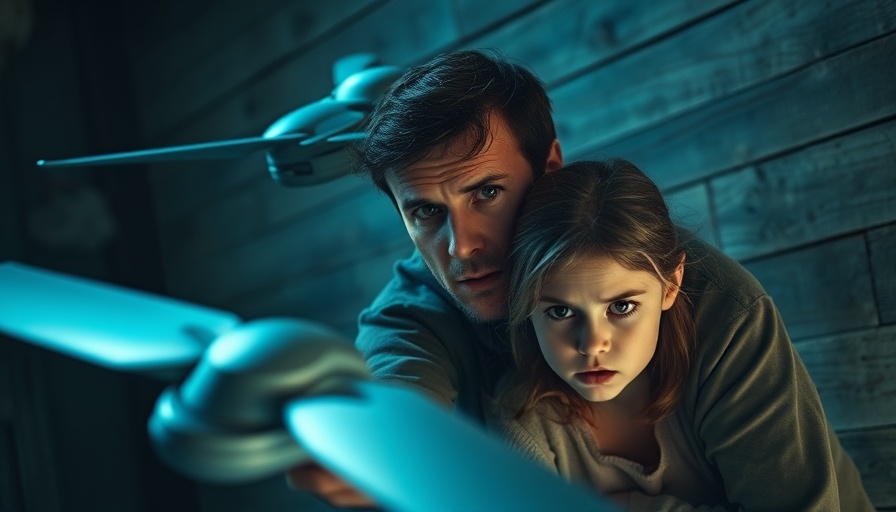
The Enduring Legacy of Spielberg's 'War of the Worlds'
Steven Spielberg's adaptation of H.G. Wells' War of the Worlds was released 20 years ago, yet its themes resonate beyond its apocalyptic narrative. In a post-9/11 America, Spielberg transformed Wells' tale about Martians invading Earth into a poignant reflection on fear, family, and survival. Despite criticism about its climax, the film remains a critical piece in the context of science fiction cinema.
How Spielberg Transfornmed Classic Material
What sets Spielberg’s War of the Worlds apart is how it marries the original story with contemporary anxieties. While Wells presented a Victorian society on the brink of chaos, Spielberg framed the tale within the context of modern fears—primarily the fear of the unknown and the breakdown of family units. The protagonist, played by Tom Cruise, navigates an apocalyptic landscape that feels eerily relevant today, showcasing Spielberg’s mastery in connecting fictional narratives with real emotional stakes.
The Technological Spectacle Behind the Scenes
As a pioneer of visual effects and immersive storytelling, Spielberg utilized cutting-edge technology to bring the alien invasion to life. The tripod machines, originally conceptualized in the 19th century, were reimagined with modern filmmaking techniques. This innovation not only enhanced the visual storytelling but also engaged audiences with a chilling realism. By enhancing the tension with these visual effects, Spielberg ensured viewers were not just passive observers but felt the chaos engulfing the world alongside the characters.
Family Dynamics Amidst Chaos
A recurring theme in Spielberg's works is the focus on family. In a world turned upside down by alien attack, the film places great emphasis on the relationship between Ray Ferrier and his children. As they struggle to survive, their bond is tested, reflecting universal themes of love and protection even in the face of despair. This exploration elevates the film, making it not just about the invasion but about the human spirit's resilience.
Reflecting on a Cultural Phenomenon
War of the Worlds isn’t merely a science fiction film; it captures a moment in time when societal fears were shifting. This cultural observation was pivotal as it mirrored the changing landscape of American life, influenced by events like 9/11. The movie serves as both entertainment and a lens through which audiences can examine their collective psyches. With technology pushing boundaries in storytelling, the innovation in War of the Worlds laid groundwork for future science fiction endeavors that would follow in its footsteps.
The Future of Sci-Fi Cinema and Technology
The world of technology continues to evolve, and as science fiction grows more innovative, it reflects our real-world advancements. As audiences anticipate new releases, Spielberg's work reminds us of the blend of innovation and narrative that has characterized the genre. This blend will undoubtedly pave the way for more immersive, thought-provoking stories that challenge perceptions of technology and its impact on humanity.
Conclusion: Spielberg's Lasting Impact on Science Fiction
Ultimately, Spielberg's portrayal of War of the Worlds showcases his ability to harness innovation and nuanced storytelling. As we revisit this classic, we are reminded of its significance as a cultural artifact that fuses the thematic depths of literature with the technological capabilities of cinema. Through this lens, we might better prepare for our ever-evolving future where science and society intersect.
 Add Row
Add Row  Add
Add 




Write A Comment